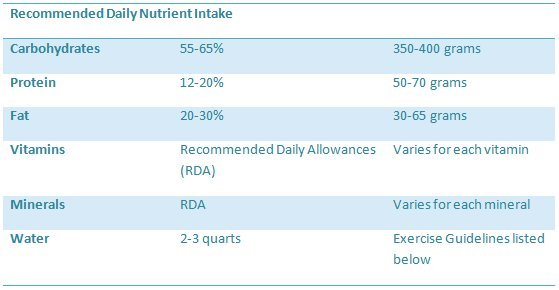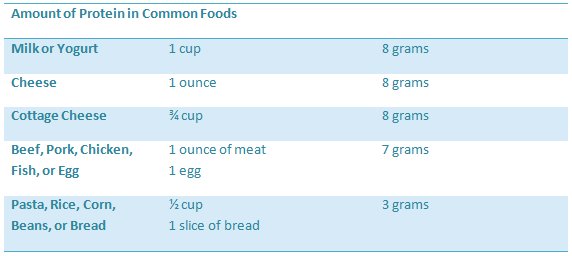|
|
Articles
Simple Ways to Maximize Sports Performance and Prevent Injury
By Tina Recalde, DPT, MS, ATC, CSCS
Tri-City Medical Center
Sports Medicine Program
The human body is one of nature’s best designed machines. Just like a car, the human body requires proper fuel and maintenance to perform at optimal levels and prevent breakdowns. The following guidelines will provide athletes with some ways to increase their overall performance and prevent injuries.
- Proper Nutrition
The food we eat and the beverages we drink are the fuel that supplies the engine of our body. Proper nutrition can positively contribute to strength, flexibility, and cardiorespiratory endurance. All of which will improve sports performance. Research studies have indicated that a low-fat, high-carbohydrate diet increases power and speed in athletes due to increased muscle glycogen which allows increased anaerobic performance. This type of diet is also beneficial as it decreases the risk of obesity, cardiovascular disease, diabetes, and some types of cancer.

The food and beverages we consume can be broken down into the following nutrients: carbohydrates, protein, fat, vitamins, minerals, and water. All of the nutrients are important for growth and repair of body tissues such as bones and muscles, the regulation of body processes, and the production of energy for cells. To support training and competition, athletes should consume a balanced diet that provides all the essential nutrients. The following table indicates the amount of each nutrient that should be used to design a well-balanced nutritional program.

Carbohydrates are the body’s most efficient energy source. Carbohydates should make 55 to 65% of an athlete’s daily caloric intake. Complex carbohydrates provide the best source of long lasting energy for the body. Examples of these are things such as whole wheat bread, brown rice, buckwheat, oatmeal, popcorn, whole wheat cereal flakes, whole grain cornmeal, whole wheat crackers, whole wheat pasta, whole wheat tortillas, and wild rice. Items made from whole grains tend to provide more nutrients than products that are refined such as white bread, white rice, and white pasta. Therefore at least half of all grains eaten should be whole grains. A serving size generally is measured as one ounce. Examples of one serving are 1 slice of bread, 1 cup of ready-to-eat cereal, or ˝ a cup of cooked rice, cooked pasta, or cooked cereal.
Protein builds and repairs body tissue and is a major component of enzymes, hormones, and antibodies (part of the immune system). Protein should make up 12 to 20% of an athlete’s caloric intake. In general the protein requirement is . For athletes, it can be as high as 1.5-2.0 g/kg of body weight. Examples of protein include meat, poultry, fish, dry beans or peas, eggs, nuts, seeds, milk, yogurt, and cheese. Serving sizes can be found in the table below.

Fat is used by the body to store energy, insulate and protect vital organs, and provide transportation of fat soluble vitamins. It is also necessary for the proper functioning of cell membranes, skin, and hormones. Fat intake should not exceed 20-30% of a person’s daily food intake. Fat is clearly visible in things such as butter, margarine, mayonnaise, salad dressings, and oils. There is also hidden fat in items such as cheese, ice cream, whole milk, granola, french fries, avocados, chips, nuts, and many processed foods. Limiting the consumption of dietary fat is the first step toward losing excess body fat.
Vitamins help promote and regulate various chemical reactions and processes within the body. They interact with foods and beverages that are consumed to perform their function and participate in the release of energy. Minerals enable enzymes to function, are a component of hormones, compose the bones, and help nerve signals travel through the body. There are different recommended daily allowances (RDA) for each vitamin and mineral. The ones that people often do not intake enough of include folate, vitamin B6, antioxidants, calcium, and zinc. Of particular concern for women in addition to those mentioned is iron. To ensure that one is receiving enough vitamins and minerals each day consider the following recommendation when eating fruit and vegetables: “five is fine” and “nine is divine.” Try to consume at least five fruits and vegetable every day. If not taking other supplements, a one-a-day multivitamin along with a well-balanced diet can assist people receive an adequate amount of vitamins and minerals each day. For those already taking some form of supplement, it is important to read the labels to see what vitamins and minerals are already within the supplement.
All of the nutrients above can be combined into a daily menu that should meet an athlete’s daily calorie needs. The estimated amount of calories needed is indicated in the table below.

For some endurance athletes, such as distance runners, cyclists, and triathletes, they may actually require many more calories per day. For example, endurance athletes who train more than 90 minutes a day should consume between 8-10 g/kg of body weight (600-750 grams for a 165 lb athlete) of carbohydrates each day. The best way to determine if you are consuming an adequate and balanced amount of nutrients is to visit: www.mypyramid.gov. Once on the website, select MyPyramid Plan from the list on the far left. This will allow you to enter information about yourself and provide you with the specific nutrient requirements for you and your activity level. For more specific nutrition information, contact a sports nutritionist.
- Hydration
The water that we consume has dual roles in the body, it is like the oil in an engine that allows it to run smoothly and the coolant in the radiator that keeps the engine cool. Water makes up 60% of an individual’s body weight. It is the most abundant nutrient in the body and is essential for all chemical processes within the body. Individuals should consume 2-3 quarts per day.
The National Athletic Trainers’ Association makes the following fluid intake recommendations during exercise: drink 17-20 oz of fluid two hours before exercising, 7-10 oz of fluid every 10-20 minutes during exercise, and 16-24 oz for every pound of body weight lost following exercise. These guidelines are especially important when the weather is hot or there is high humidity.
Without proper hydration the body will begin to experience muscle cramps, heat exhaustion, and heat stroke. If not managed properly, muscle cramps can lead to muscle and tendon tears which can end an athlete’s season. Heat exhaustion and heat stroke can be life threatening conditions, so be sure to drink water when engaging in physical activity.
- Adequate Sleep
The average person requires 6-8 hours of sleep each night. Does a person who is active require more or less sleep?
For someone who is exercising regularly or participating in sports, they actually require more sleep. During exercise, cells throughout the body are damaged and need time to recover. It is during sleep that the body is completely at rest and the body can devote the majority of its energy to healing all of the minor damage within the tissues. Allowing sufficient time to sleep each night will allow the body to recover more effectively. This will improve sports performance and decrease the risk of injury.
Also, until the age of 18 years it is recommended that children sleep at least 10 hours every night. It is while children are asleep that the body produces growth hormone. Sleeping 10 hours each night will ensure that children reach their maximal height and strength capacity. If they are not getting enough sleep, they may not grow as much due to decreased growth hormone production. If unable to sleep 10 hours each night, allow then to sleep a little extra on the weekends.
By having a proper balance of nutrition, hydration, and sleep an athlete can assist his or her body to function optimally and prevent breakdown. These basic guidelines will allow the body sufficient tools with which to repair damaged tissues and have peak performance.
|
|